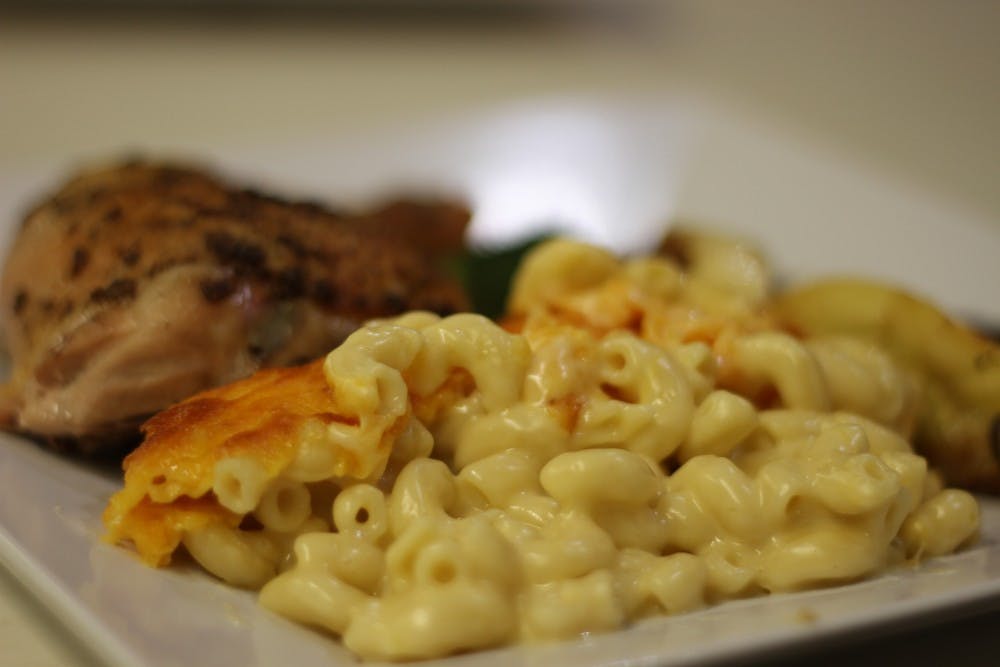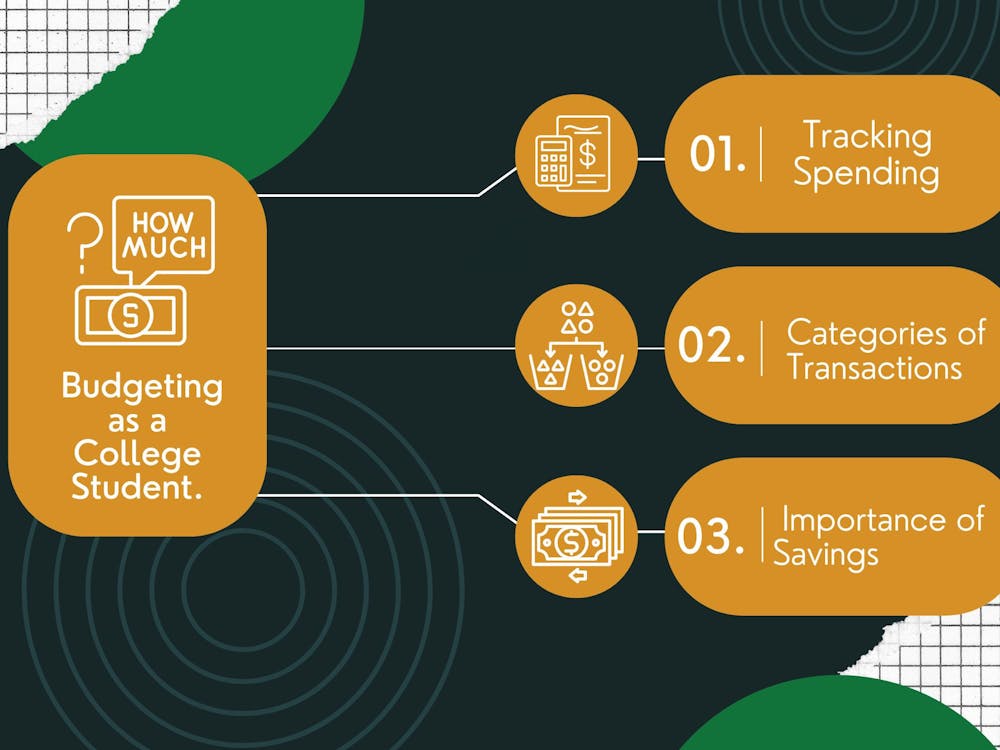by Alina Rosencranz |
In the midst of classes, meetings and social commitments, a balanced diet is often one of the first things to fall through. Once unhealthy indulgences become habits, they can be hard to undo.
We’ve all heard the myths about the “Freshman 15,” the number of pounds you supposedly pack on your first year away from home, and there are several misconceptions students have as to what it means to be healthy.
What triggers the Freshman 15?
According to nutrition professor Victoria Warren-Mears, several factors play into the notorious weight gain phenomenon that occurs during freshman year. For one, there are more food options available on a college campus. A wider variety of food, combined with a lack of parental control and students’ propensity for stress eating, makes people pack on the pounds. Changes in physical activity also play a role.
“I’m pretty sure that at UP there are lots of people who were high school athletes, that aren’t playing their sports at a college level,” Warren-Mears said. “So they’ve changed their physical activity tremendously and you also have to adjust your eating if you change your physical activity.”
What are common mistakes students make regarding food?
A lack of food and water consumption are the two main mistakes UP students make regarding their diet, according to Gemma Hobbs, a dietitian at the Health Center. Often students are too stressed or sleep in and skip a meal as a result. This may cause a lack of concentration later during the day Hobbs points out.
Students commonly perceive drinks like Vitaminwater and similar beverages as healthy, though they contain a lot of sugar, Hobbs explains.
“I think that marketers are really clever and they make them seem like they are full of nutrition and vitamins and all that kind of stuff,” Hobbs said. “But it might not be something that you need every day and you could probably get those vitamins in just regular food.”
She recommends cutting back from beverages that contain a lot of caffeine and sugar.
How do I successfully change to a healthy lifestyle?
Before making any actual changes, Warren-Mears explains that it’s important to understand what the individual person has to change. An analysis of one’s current diet is the first step toward a healthier lifestyle.
It takes doing something 150 times before a habit is formed, so Warren-Mears recommends taking baby steps.
“I usually recommend that people start out by changing one thing at a time,” Warren-Mears said. “As opposed to the New Year's Eve strategy of ‘I’m going to change everything all at once’ and sort of falling flat on your face.”
It can also be helpful to start increasing a habit rather than decreasing another. For example, a first change could be increasing how much fruit one eats — which might be easier than decreasing the consumption of candy or other treats.
What options does UP offer to help me change to a healthy diet?
On top of salad or fresh fruit as some healthier food options, UP has more to offer students that are seriously invested in their diet and nutrition. On its website, Bon Appetit provides a table that lists nutrition facts for some popular ingredients, along with an option to ‘ask the dietitian’ specific questions. Other options for learning more about nutrition is taking the NRS 202 class on nutrition, or making an appointment with Hobbs at the Health Center.
“I’d be happy to talk with people, or anybody that really wants to come see me,” Hobbs said. “I like to take a non weight-centered approach. If people are worried that I’m gonna ask them to lose weight, that is not gonna be the case.”
Gemma Hobbs can be contacted via email at hobbs@up.edu.
Alina Rosenkranz is a reporter for The Beacon. She can be reached at rosenkra17@up.edu.








